The Chinese social credit system - is the devil scary?
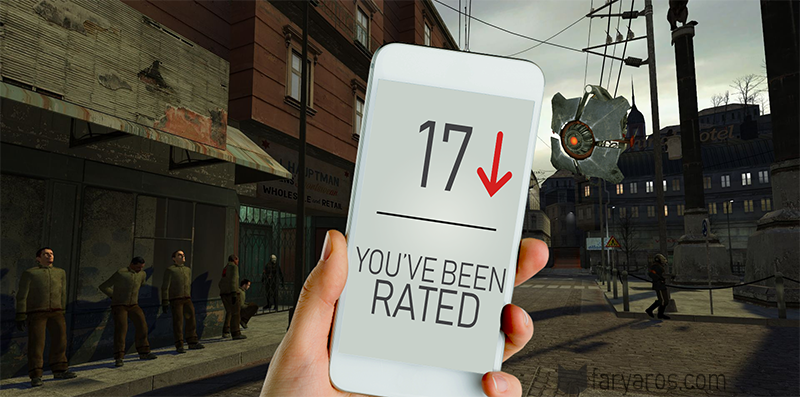
The Chinese social security system is frighteningly gaining momentum. It seems that all the countries of the world have come to an agreement and promise us a digitalization to the ears. In Moscow, increase the number of cameras with facial recognition technology. Venezuela, Mongolia, Ecuador and even Zimbabwe are customers of Chinese IT companies for the development of similar systems.
Some recall the “Black Mirror”, others associate with our life with the subtext “get ready, death will soon appear in Russia itself”. Let's try to start a critical thinking motor. Is it all really scary for us?
Digital dictatorship
The Chinese are planning to launch a social credit system by 2020. They create it as a self-regulating system of softer totalitarianism, so that the people with the help of manipulative intimidating tools themselves led to the "correct" behavior.
It turns out all the classics: who owns the information, he owns the world.
It all started with the fact that in China there was no single scoring system until 2015, when Ant Financial, a subsidiary of Alibaba Group, invented its own ( Zhima Credit ) and provided access to it to the People’s Bank of China. Well, as provided, when the government saw this as a benefit, it itself gently made . The IT companies that created the technology were under pressure ... although they are probably not used to it. Not that business in Russia ... although what am I talking about?
All payments in China (even on the market) are made through the national payment system Alipay. Everything is stored in it: both personal data of a different sort and infa about all aspects of a person’s life (what car he buys, what kind of education he gets and many, many different things). Nothing will slip away from the big Chinese eye. The social credit system at the government level, of course, is not limited to payments alone. Everything is much more serious.
By the 20th year , another 626 million cameras with facial recognition technology with an existing 178 million will be installed across China. It is as if every citizen of Russia was watched by an average of 4 cameras around the clock. So, the big brother will follow the Chinese everywhere, and not only follow, but also charge a rating depending on the behavior. Universal hysteria is reinforced by the fact that it can not only increase, but also decrease.
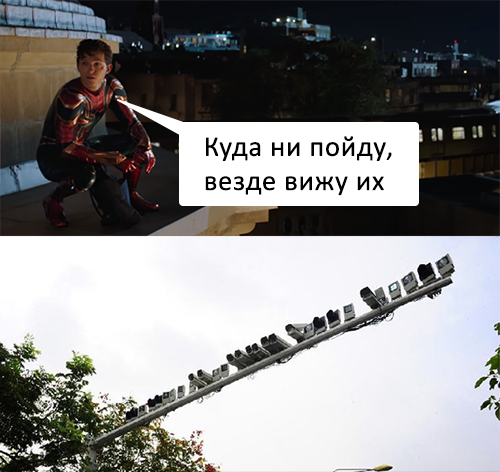
I bought diapers - well done, + n to the rating, played a few hours in a game - minus to the rating. And what if, for example, I just moved from the needle of male approval to video games and hate children? (joke). The contact list also affects the rating, and users have no choice but to evaluate a person regarding the size of his rating. And you say the size does not matter ...
If you look, to put it mildly, not very, and you can’t see that you are a “white” person, then most likely you will not add a Chinese citizen to your contact list. Nothing personal, just a rating ... Well, and who has a bad rating, he does not travel with the wind and Chivas does not drink.
If you are still taping the webcam with tape, then, probably, in vain, because we, apparently, are entering the era of digital dictatorship. Privacy is at stake. In Moscow, increase the number of cameras with facial recognition technology. The application FindFace , which allowed you to take a picture of an asshole smoking in your face on the street, and find him in social networks to impose, attracted the attention of the state, which became its main customer and closed the technology from prying eyes. And with the craftsmen who created the similar SearchFace service, VK is trying to fight .
Article in video format
Risks
My brain, technically educated and experienced in development, rushed to think in the direction of implementation. What criteria of correctness and incorrectness will the system take into account? What is the probability of its hacking? Who will ultimately decide on the fate of the offender based on the findings of the system? Questions open.
If we assume that the facial recognition system, neural networks and the cameras themselves have a total error of 0.01% (is this even possible?), Then, multiplying this by 626 million cameras, we get that approximately 62 thousand cameras will attribute the erroneous violations not to those people.
For example, in the Chinese city of Ningbo, entrepreneur Dong Michu was fined for switching to red for pedestrians, but Dong herself was not there. The system recognized her face on the bus that was driving onto the green (I wonder if sticking a photo of a neighbor - will it work?).
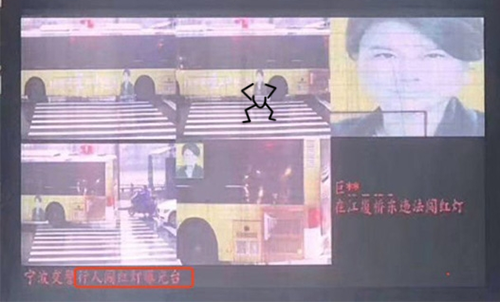
Photo "violators"
Journalist Liu Hu could not buy a flight ticket because of the fine he had already paid. He sent a check to the judge, but he simply does not respond. The guy can not leave the country.
The stuffing from the system with potential errors, human factor, possible hacking and unknown evaluation criteria caused in my mind a potential list of countries where I could dump from such a system, but did not think of anything, because, as I wrote above, even Zimbabwe is implementing a similar the system.
pros
Most likely, for people who just live, like our average friends and companions, this rating is sideways. He will have an average good. And we have already figured out who has a good rating - he eats pies from the shelf and, at least, can fly out of the country.
And in general, I like technical progress, but, we are indignant that Russia weaves valenki, then we resent its success in what we see as “scary” technologies. Digitization is our inevitable future. Guys, since we say A, let's talk and B. We want new technologies, convenience and development, let's reap the fruits of people's thought processes “at the top”. After all, we are not naive with you, to think that unmanned free trams will be created for us, but at the same time the next Spring will not appear with its next package based on this technology? Or maybe the system will be punished by the fact that only trustworthy people will ride the subway for free thanks to face recognition technology? Well, this is me, I fantasize.
Even with the fact that the Chinese government cursed three times when it was stunned by 9 thousand corrupt officials identified by the system, and decided to cover the service for the officials, what is bad for us? Some of those officials were reprimanded, some were dismissed. The scourge of our country may not be reduced to 0 from similar technologies, but at least potentially it can be reduced. At a minimum, lazy bureaucrats with an ossified brain are tempted to invent methods for collecting tribute to bypass the system.
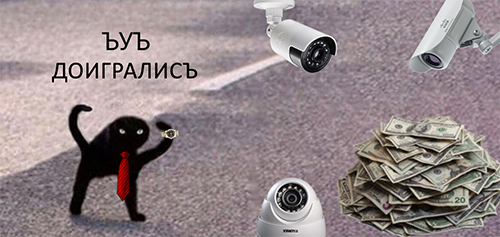
So maybe life for us in general will not change in any way, and we will still go to work at 7 am and push priests on the subway? Here are just a pickpocket who stole your wallet in a crowd, or a dude who was sick of being imprisoned in the subway and stuffed a face to a guy who accidentally pushed him would be easier to find. Incidentally, I have repeatedly encountered similar situations - a pleasant enough.
Now the punishment is determined completely by the human factor, and with such a system the responsibility for identifying violations will be divided by 2, since the system will also participate in the assessment. The possibility of evasion, though it does not go to absolute zero, but will decrease for sure.
And here's another from the personal. Nobody will take advantage of your ticket to the Universal Orlando amusement park for $ 200, because you were photographed at the entrance, and before putting on the next attraction, they compare the photo on the ticket and your face using face recognition technology. Trifle, but nice ...
And let's not be hypocritical and cunning, we are much calmer if there is a DVR in the car, there is a camera in the stairwell, and on the child’s watch with a GPS navigator, to (oh, horror!) Track its movement. My friend put on a child a bracelet with this function: you call him on the bracelet and listen in on what is happening around. And we consciously use these technologies. We ourselves teach children to calmly relate to total control. They will be accustomed by the time the system appears.
Reality
Let's go back to the Chinese. The social credit system involves the use of a whole range of various complex technologies - computer vision, in particular, face and image recognition, neural networks, Big Data, machine learning.
According to Gartner, any system has a peak of HYIP and the next plateau of productivity. If we are talking about neural networks, as the basis of the system, then they are just on a wave of high expectations, and before the plateau of productivity, they are still like cancer to China. And, as a rule, they expect more from all HYIP systems at their peak than they can in reality.
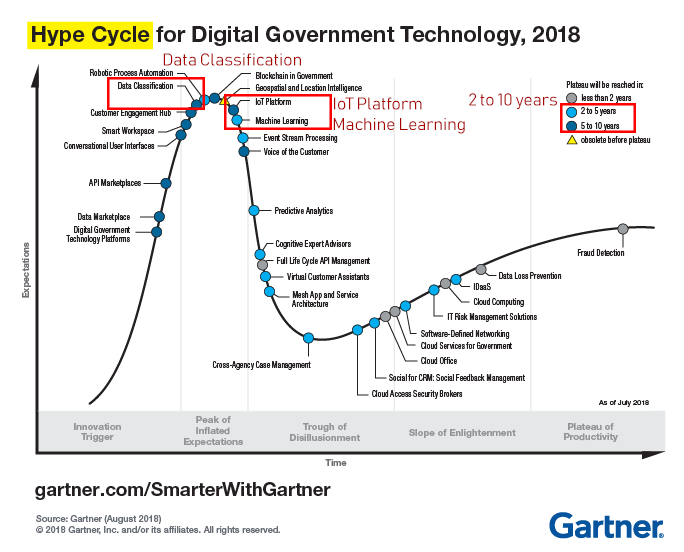
Big Data generally involves the collection, storage and processing of data of such magnitude that Spring with its bag rests. What capacity will be needed for the population of China, I can not even imagine.
But, of course, the Chinese will launch the system, if not by the 20th, or by the 30th year. Still, the last word in such a system is likely to remain with the person.
“The State Social Credit Information Center of China prepared a report from which it follows that in 2018 information was collected on 14 million cases of violations that lead to a decrease in the social rating of companies and individuals (such as customer fraud, credit overdue, advertising introducing misleading and so on). To date, almost 4 million legal entities have been entered in the “black lists” (they will not be allowed to participate in public procurement, land auctions, etc.), 17.5 million people cannot buy air tickets, 5.5 million people are train tickets. In addition, blacklisting people find it harder to buy insurance, real estate, and financial instruments. In some cases, information about "violators" was published in open sources in order to "shame them."
Varlamov News
17.5 million people for China is 1.2% of the population. In Russia, the share of citizens with incomes below the subsistence minimum for 2018 was 14.2% of the country's population. These are people who do not need to block access to the purchase of airline tickets, for example, in principle, they cannot buy a ticket.
And even the law on the isolation of the Internet in order to protect it looks frightening exactly as long as you do not read about the initiators of the law - a lawyer-entrepreneur, a teacher of Russian language and literature and a former convict. And for everything about all the guys need 1.8 billion rubles from the budget, and after 20 more ... And Russia is not China, we do not have an intranet, we somehow have everything differently.
Let everything at the moment has the appearance of a lame horse, but, in my opinion, the officials themselves are digging a hole for themselves.
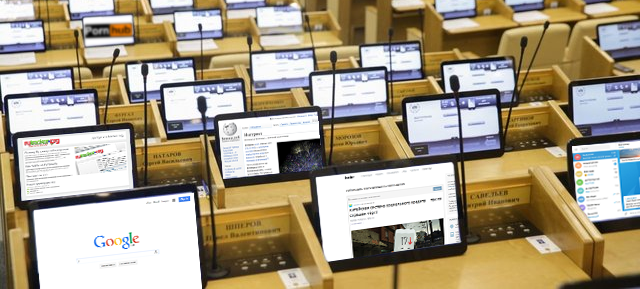
Internet isolated from the main threat
The introduction of a full-fledged well-functioning system that clearly performs its functions, as for me, is an ideal picture of the world where corrupt officials suffer, where no one wants to beat another in the face because he has drunk, and children can go outside alone ... for a long time I have not seen as a child, remember?
And in fact, we don’t know a damn whether this is good or bad. But ... we are people, it's easier for us to think in a negative direction.
Farida Roslovets
')
Source: https://habr.com/ru/post/453850/
All Articles